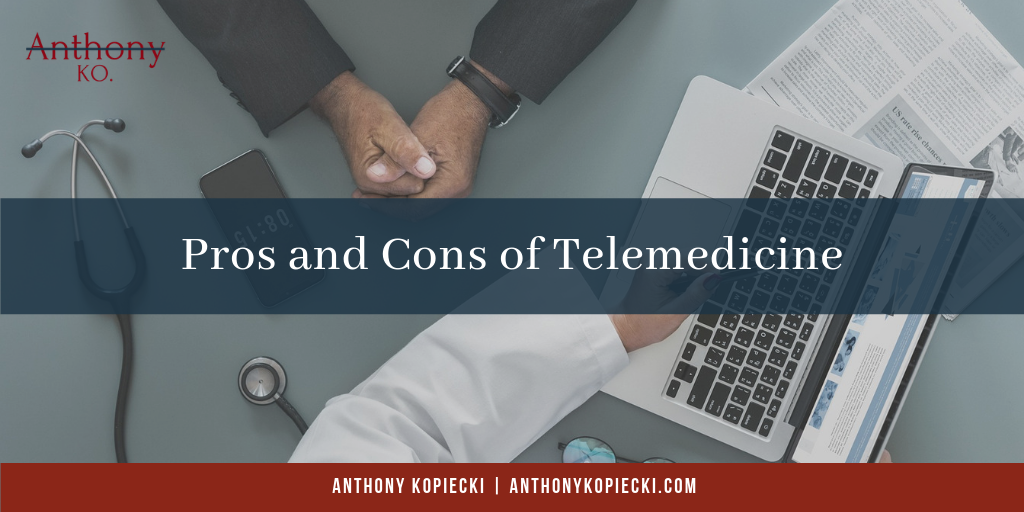New technologies are advancing the field of medicine that are allowing health care providers to offer better and more accurate diagnoses, decrease wait times and even keep more accurate records. As with every new technology, however, there are definite pros and cons. One of the most recent advancements in medicine is telemedicine, where care is administered via a video conference or chat. Here are some of the pros and cons of this next new wave of medicine.
PROS:
-
- Quick, easy and convenient: No more waiting in line at either an urgent care clinic or the doctor’s office.
- Less spread of disease: Sitting in medical waiting rooms often exposes healthy people to all kinds of germs, diseases and viruses. People who are already sick or immunocompromised can become even sicker or be exposed to even worse diseases and stronger viruses in medical waiting rooms.
- Great for pre-screening: In many cases, when you visit the doctor they are able to determine very quickly what is wrong or most likely wrong, but can’t do anything about it at the moment. You may need more testing or even surgery, which may have to be scheduled for a later time. Telemedicine can save you several trips and shorten the intervening time when you do need to schedule a live visit. This can be particularly beneficial to patients who live a great distance from the nearest hospital.
CONS:
-
- Less effective: The human body is amazingly complex and scans and tests can only tell a doctor so much. Doctors are trained to notice small details like a strange breath odor, slightly irregular breathing or even certain behavioral cues. These can be difficult enough to detect in person during a short visit. They are nearly impossible to detect via video or audio.
- Limited scanning and testing: There are a number of scans and tests that doctors have at their disposal that may one day be available remotely. In the not too distant future, patients will likely be able to deliver blood and urine samples remotely and accurately monitor a number of vital signs. Unfortunately the technology is not quite there yet, meaning telemedicine providers must work with a more limited pool of data than they would have in office.
- May place an even heavier burden on doctors: One of the biggest issues with managed health care is that doctors already have very little time to spend with each patient. Pressures from hospital administration and insurance providers put an increased premium on delivering services in the shortest time possible. Telemedicine is even more susceptible to these pressures, and doctors working within it may find themselves asked to focus on volume, rather than effectiveness.

